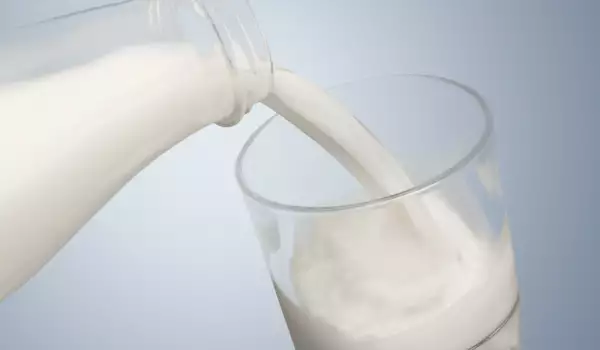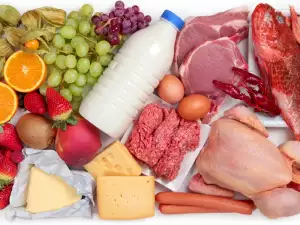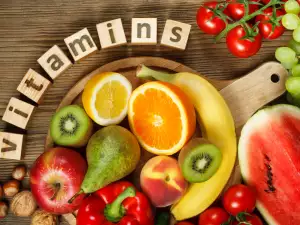Milk is known to protect bones from fractures because it contains vitamin D. But scientists at Uppsala University in Sweden warn that excessive milk intake can be dangerous to health because some types of sugar in milk increase the risk of inflammation.
The study showed that drinking more than three glasses of milk a day could not protect bones from fracture and at the same time increased the risk of early death. Experts suggest that certain types of sugar in milk may increase the risk of inflammation and oxidative stress, which damage the body's cells.
During the animal study, it was found that the consumption of a large amount of lactose and galactose contained in milk is associated with cell damage, impaired immunity and premature aging.
To conduct a human study, scientists surveyed 61, 433 women and 45, 339 men who answered questions about the consumption of 96 foods, including milk, yogurt and cheese.
The women were followed for an average of 20 years, during which time 15, 541 of them died and 17, 252 had a fracture (in 4, 259 cases a hip fracture). The results showed that consuming large amounts of milk did not reduce the risk of bone fracture, and women who drank more than three glasses of milk per day (on average 680 ml per day) had twice the risk of premature death than women who drank one glass of milk a day (about 200 ml).

The men were followed for an average of 11 years, during which 10, 112 died and 5, 066 had a fracture (in 1, 166 cases of femur fracture). Excessive milk consumption by men was also associated with an increased risk of death, although significantly lower than that of women.
Blood and urine analyzes show that excessive milk consumption is associated with biomarkers of oxidative stress and inflammation. In contrast, consumption of large amounts of low-lactose dairy products, such as cheese and yogurt, reduces mortality and fractures, especially in women.
However, the Swedish scientists note that their study did not establish a connection, so further testing is needed before recommending limiting milk intake.
Despite the results, people should still stick to a balanced diet of the five key food groups, of which milk and dairy products are important, experts say.
Recent studies question the supposed benefits of cow's milk. Contrary to popular belief, excessive consumption of cow's milk can harm health.
Cow's milk and milk products are among the most consumed foods in the world, along with eggs, pork, chicken, beef. Milk is one of the most used products every day.
Just think of the morning coffee you add milk to. Or black tea, which you also take with milk. What about all those cake recipes, fluffy pancakes and dairy creams that have milk in them?
Why is excessive consumption of milk harmful?
Nowadays, new techniques are used for artificial breeding of cows. For example, antibiotics are used, breeds are genetically selected, cows are fed differently. Animals are treated with growth hormones. These changes have resulted in the cows producing an impressive more than 15 liters of milk per day. Just for comparison, in the past, a cow produced just over 2 liters of milk a day.
It's amazing to see how the cows have increased their milk production.
Although artificial breeding techniques have brought many economic benefits to the dairy industry (just imagine how much cheese making has grown), the truth is that this change has consequences for humans.
Over the years, several studies have been conducted on the health effects of cow's milk consumption, and the conclusions are consistent regarding its effect on the body.
A recent study at Harvard University highlighted the effect of this product and concluded that there is a link between excessive consumption of cow's milk and the occurrence of various diseases.
Migraine
Research has shown that migraine sufferers experienced a significant reduction in symptoms when they stopped drinking cow's milk. For some, the headache has decreased already after the first two weeks in which they give up the consumption of milk and cheese.
Constipation
Lactose intolerance is one of the causes of constipation, both in children and adults. If you stop the consumption of milk and increase the consumption of fruits, vegetables and fiber, this problem will be solved. In case you cannot give up milk, you can replace it with plant based milk. There are great alternatives to milk.
Types of cancer
The presence of hormones and other substances in cow's milk increases the risk of occurrence of various types of cancer such as stomach cancer, breast cancer, ovarian cancer, prostate cancer, lung cancer, testicular cancer.
Cataract
Research shows that people who consume cow's milk and its derivatives develop cataracts more often than those who avoid them. This problem is related to the lactose content, which affects the female population more.
Chronic fatigue
A study from the last century of children from New York indicated that for another harm from the excessive consumption of milk - increased by 44.3% the risk of suffering from chronic fatigue.
Milk allergy
Cow's milk allergies are classified as a defense mechanism of the immune system. Studies reveal that allergic reactions can occur immediately or be noticed after several hours or days.
Many people think that skim milk is healthier, but according to scientists from Harvard, it also has its harms, they recommend that this type of milk drink should be avoided. Let's move on to the other harms from the excessive consumption of milk.
Other 17 diseases related to the harm of excessive consumption of cow's milk:
- rheumatoid arthritis;
- osteoarthritis;
- asthma;
- autism;
- ulcerative colitis;
- irritable bowel syndrome;
- type diabetes; I
- stomach ache;
- Crohn's disease;
- coronary heart disease;
- multiple sclerosis;
- anal fissures;
- lactose intolerance;
- lymphoma;
- sleep problems;
- peptic ulcer.
Attention, the article about the consequences of excessive milk consumption is of an informative nature. Remember that every organism is different, and milk may be beneficial for one and harmful for another. Do not prescribe diets and self-medication without consulting a doctor.




















Comments